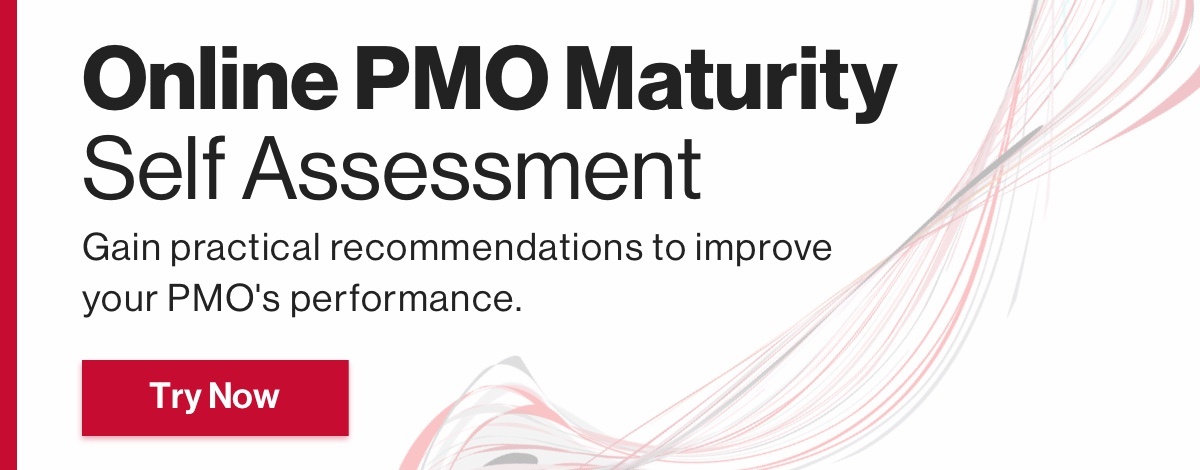Are You Doing the Right Projects Right?
A Recommended Approach to Reviewing and Uplifting Your PMO Capability
MetaPM Team
As many organisations are starting to plan their new financial year, we encourage you to ask the age old question of ‘Are you doing the ‘right’ projects, and are you doing them ‘right’?
The goal of any high performing organisation is to align their Capital investment Portfolio, to strategy (doing the right projects) and have the people, processes and tools to execute efficiently and effectively (doing projects right). It’s not uncommon to hear of successful projects being delivered that add little or no value to the business and/or have no link to the strategy set by the business.
So as you prepare for the coming financial year, first ask yourself whether your business is prioritising the right projects, and then evaluate whether you’re equipped to “do them right”!
Doing the Right Projects
Before a project can begin, stakeholders must initiate the idea and decide whether to finance the endeavour. Since most significant parameters (scope, schedules, funding, etc.) are not yet finalised at this point, decisions are critical. This is the time to decide whether a project is ‘right’ for your organisation.
What makes a project ‘right’?
When businesses are young, they may take any project that comes their way, but the sooner they establish and maintain a focus, the better off they’ll be. An effective project organisation focuses their limited resources on the ‘right’ projects, declining to work on projects that are poorly aligned with their strategic goals.
Picture a funnel in these early stages of project selection. The mouth of the funnel captures all of the ideas for projects that the business could undertake. These ideas may hail from strategy, regulatory requirements, customer requests or individual employees. If your organisation decided to pursue every idea in the funnel, it would have no comprehensible plan or focus. The purpose of the funnel is to choose only those projects that meet specific criteria. The result is a collection of projects that is definitive, coordinated, and executable. Ultimately, the collection will help you fulfil your core business objectives.
Consider the benefits
Each project should produce tangible benefits, but will those benefits help your business achieve its goals over the next twelve months? Are the benefits aligned with your overall business goals?
Consider what your organisation is trying to achieve over the next twelve months. As you evaluate potential projects, think about how the projects’ benefits will or won’t mesh with your goals. Such alignment will help you weigh the suitability of potential projects.
Benefits Review
A benefits review plan helps you determine if a project’s expected benefits have been achieved. It’s a powerful tool for helping you pursue the ‘right’ projects.
To gather the information that will help you make informed decisions, include the following in your benefits review plan:
- The scope of the benefits review plan
- Who bears accountability for the expected benefits
- Methods for measuring benefits
- Timing for taking measurements
- The processes and resources necessary for the benefits review process
- Baseline measures from which benefits can be calculated
- Who will be responsible for ensuring completion of the benefits review plan.
Our benefits review solutions are designed to reduce the risk for decision-makers and planners. If you’re working to refine your project portfolio, we can assist by helping you develop a benefits review plan that will serve you well on the front end where it counts.
Portfolio Management
Project portfolio management (PPfM) focuses on selecting the ‘right’ projects at the right time. In other words, it manages projects as a portfolio of investments, balancing risks and keeping the selection strategic.
Effective portfolio management increases business value by aligning projects with the organisation’s strategic direction. It also makes the most of limited resources and encourages synergy between projects. Unfortunately, many businesses do portfolio management insufficiently, leading to a lack of strategic results and a mix of all the wrong projects.
Portfolio Prioritisation
To build an optimal portfolio of projects, you need a systematic approach for differentiating between candidate projects. Which ones will be ‘best for your organisation? And what does ‘best’ mean?
The definition will be different for each business, depending on strategic goals. For instance, one organisation might prioritise ROI while another values growth. Start by selecting a shortlist of criteria by which you’ll measure each project’s value to your unique business. Resist the temptation to include too many criteria; your task will be unmanageable with too much data. Four to ten carefully selected criteria are plenty.
Ultimately, you need a process for determining which projects will help you achieve your goals. A strong portfolio of winning projects will keep you on target and collecting benefits that will serve you well.
Doing Projects Right
Once you’ve chosen the ‘right’ projects, it’s time to focus on doing them ‘right’! You’ll need the proper structure, people, methodology and tools for delivering your project portfolio successfully.
A well-designed and operational project management office provides the support and resources necessary for delivering quality results. With expert support, your project managers will have everything they need to stay on schedule and keep the work moving forward.
How do you ensure that your PMO is sustainable, effective and engaged? Read Chris McGowan’s write-up of a PMO Panel discussion facilitated by Gary Yorke. The event included a lineup of panellists, including Chris Bonfield of QBE Insurance, Spela Adamic of Amaysim, and Nathan Horrigan of AGL Energy.
With a sustainable, effective and engaged PMO, the ‘right’ projects will be done ‘right,’ and you’ll be well on your way to achieving your organisation’s strategic goals. To learn more or to schedule a consultation with us at MetaPM, get in touch. We’re here to support you in your quest for excellence.
Weekly Newsletter
Subscribe to our newsletter today to keep up to date on what’s happening.


